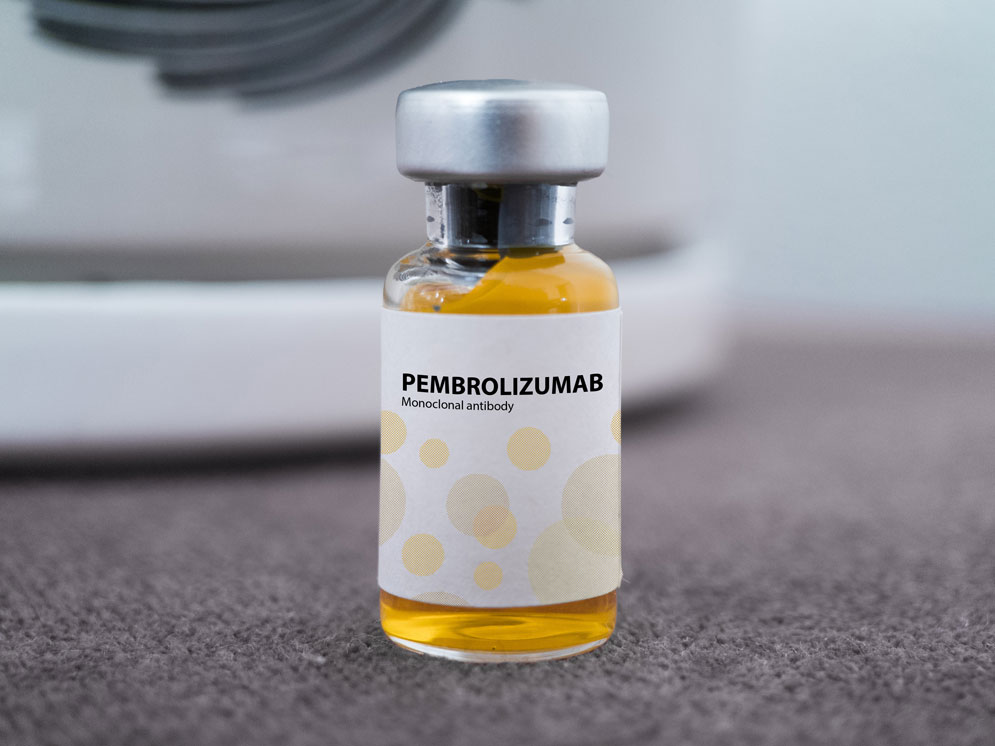Advertisment
Padcev and Keytruda significantly improve overall survival and progression-free survival in previously untreated advanced bladder cancer in pivotal phase III EV-302 trial – Seagen + Astellas

Seagen Inc. and Astellas Pharma Inc. announced positive topline results from the Phase III EV-302 clinical trial (also known as KEYNOTE-A39) for Padcev (enfortumab vedotin-ejfv) in combination with Keytruda (pembrolizumab) versus chemotherapy in patients with previously untreated locally advanced or metastatic urothelial cancer (la/mUC), a form of bladder cancer that has spread to surrounding organs or muscles, or other parts of the body.
The EV-302 trial enrolled patients with previously untreated la/mUC who were eligible for cisplatin- or carboplatin-containing chemotherapy regardless of PD-L1 status. The EV-302 study met its dual primary endpoints of overall survival (OS) and progression-free survival (PFS), compared to chemotherapy. An Independent Data Monitoring Committee determined that OS crossed the pre-specified efficacy boundary at interim analysis. The safety results of the combination are consistent with those of enfortumab vedotin in combination with pembrolizumab previously reported in cisplatin-ineligible patients with la/mUC.
Thomas Powles, M.R.C.P., M.D., Professor of Genitourinary Oncology at Queen Mary University of London; Director, Barts Cancer Center, London; EV-302 Primary Investigator; “Over two hundred thousand deaths from urothelial cancer are reported worldwide annually, making it a major cause of morbidity and mortality. The topline results from EV-302 are encouraging for patients with advanced-stage urothelial cancer, which is aggressive and associated with devastating outcomes.”
The EV-302 trial is an open-label, randomized, controlled Phase III study, evaluating enfortumab vedotin in combination with pembrolizumab versus chemotherapy in patients with previously untreated la/mUC. In this study, patients were randomized to receive either enfortumab vedotin in combination with pembrolizumab or chemotherapy. The dual primary endpoints of this trial are OS and PFS per RECIST v1.1 by blinded independent central review (BICR). Full details will be reported at an upcoming scientific congress.?
The EV-302 trial is intended to serve as the basis for global submissions and as the confirmatory trial for the U.S. accelerated approval of this combination. In April 2023, the FDA granted an accelerated approval to Padcev in combination with Keytruda for the treatment of adult patients with la/mUC who are not eligible to receive cisplatin-containing chemotherapy based on the results from the EV-103 trial. The trial is part of an extensive program evaluating this combination in multiple stages of urothelial cancer.
Ongoing Investigational Trials : i. The EV-302 trial (NCT04223856) is an open-label, randomized, controlled Phase III study, evaluating the impact of treatment with enfortumab vedotin in combination with pembrolizumab versus chemotherapy in patients with previously untreated locally advanced or metastatic urothelial cancer (la/mUC) who were eligible for cisplatin- or carboplatin-containing chemotherapy regardless of PD-L1 status. ii. The EV-103 trial (NCT03288545) is an ongoing, multi-cohort, open-label, multicenter Phase 1b/II study investigating enfortumab vedotin alone or in combination with pembrolizumab and/or chemotherapy in first- or second-line settings in patients with la/mUC and in patients with muscle-invasive bladder cancer (MIBC). iii. Enfortumab vedotin in combination with pembrolizumab is being investigated in an extensive program in multiple stages of urothelial cancer, including two Phase III clinical trials in MIBC in EV-304 (NCT04700124, also known as KEYNOTE-B15) and EV-303 (NCT03924895, also known as KEYNOTE-905). The use of enfortumab vedotin in combination with pembrolizumab in second-line urothelial cancer and in MIBC has not been proven safe or effective.





